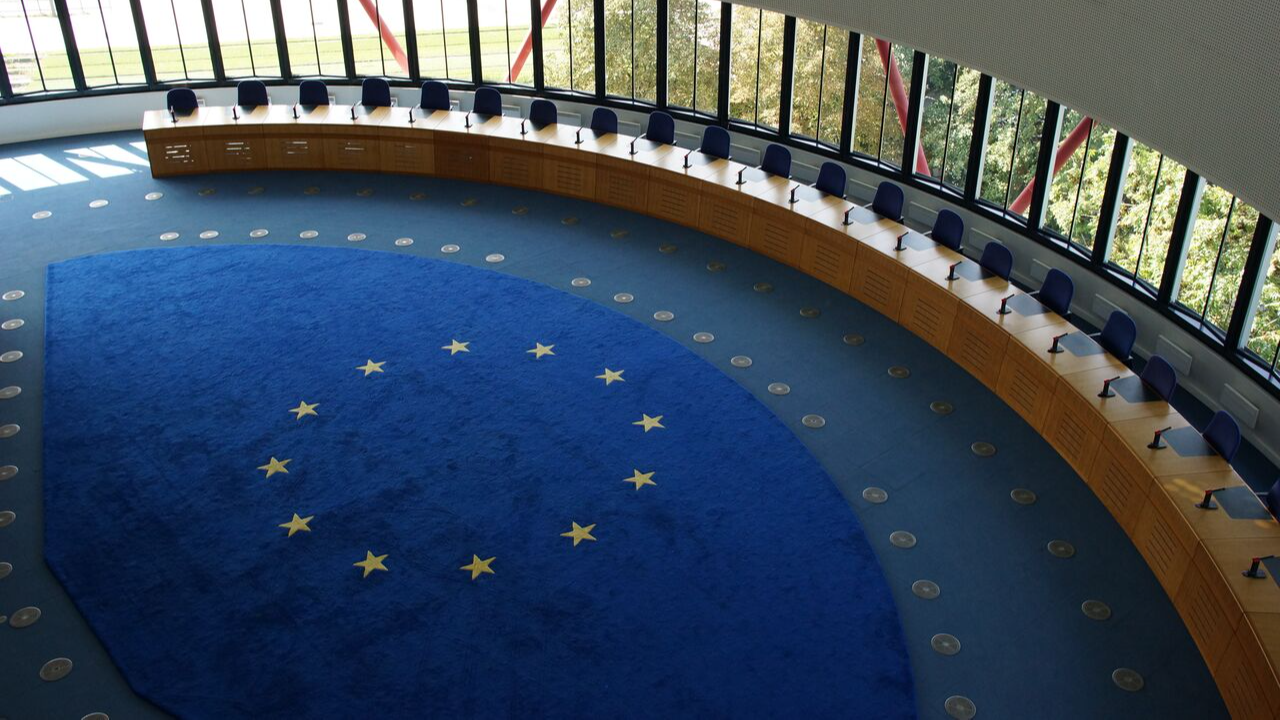
Don’t believe the hype: Making good use of a blackout
The Spanish blackout of April 2025 is an opportunity to strengthen electricity systems that have higher shares of renewables and should not be used as an excuse to slow down the energy...

by Knut Haanaes, Francisco Szekely Published April 11, 2024 in Sustainability • 6 min read
In an unprecedented ruling, a group of Swiss women have won an eight-year battle at the European Court of Human Rights (ECHR) to protect their right to life by challenging government authorities to increase their commitments to address climate change in Switzerland. Following the Strasbourg-based court’s judgment, attention is turning to how citizen power could shape legal challenges to government climate inaction globally.
The case, which was brought by a Swiss group called KlimaSeniorinnen (Senior Women for Climate Protection), argued that the Swiss authorities had not done enough to meet the country’s target in reducing carbon emissions and must act to address that shortcoming.
The two thousand members of KlimaSeniorinnen argued that their health was at risk during heat waves related to global warming. They argued that Switzerland had vowed to reduce its greenhouse gas emissions by 20% by 2020 compared with 1990 levels. The ruling acknowledged that between 2013 and 2020, Switzerland had reduced its emissions levels only by around 11%.
This is the first time an international court has determined that governments are legally obligated to meet their climate targets under human rights law. This sets a precedent that has the potential of becoming a landmark for citizens not only to hold their promises but also to accelerate actions to reduce climate change in their countries through business and civic activities.

“The ruling highlights the power of citizen action in holding governments accountable for climate commitments.”
One of the questions raised by the judgment is whether it will move the dial of citizen protest away from the streets and towards the courts. Activists and environmental groups have proliferated in recent years, with groups from Greenpeace to Just Stop Oil pushing governments and businesses to take immediate action on climate mitigation actions rather than constantly committing to future targets on climate change.
The image of environmental activists is typically associated with young people who question the way we lead our lives and the impact it is has on the health of our planet. Their efforts have had some limited impact. But many countries, including the UK, are already criminalizing citizen protests about environmental issues and climate change. Are we likely to see more groups taking to the courts to make their case, perhaps bypassing street activism entirely?
Taking the legal route is not a guaranteed panacea for the difficulties facing civic movements, however. Encouraging as the Swiss victory was for activists, two other current cases also addressing climate change and human rights failed in the ECHR on the same day. One of these was brought by a group of young Portuguese activists who sued 32 European governments for failing to act on the climate crisis.
The latter case was dismissed on the grounds that it should be heard in Portugal rather than in a cross-border court. However, it may also be that the scale and scope of these kinds of legal challenges can influence the likelihood of success. The complexities associated with suing multiple governments simultaneously mean it is a strategy that is beyond the means of many smaller citizen groups.

“Governments and businesses face increased pressure to align actions with climate commitments post-ruling.”
The ECHR ruling has put governments on notice to deliver on their climate promises. It has already become clear in recent months that some European governments are stepping back from green policies prior to general elections in which such issues have become politically incendiary amidst an anti-green — or anti-ESG — backlash.
There are equally stark lessons for businesses, which could increasingly become targets of citizen legal action if they do not move fast enough to meet their environmental obligations. Indeed, in a practice known as ‘greenhushing’, there is evidence that some organizations are already promising less or at least becoming less vocal when it comes to their sustainability strategies and actions.
According to a 2023/2024 report by climate consultancy South Pole, the majority of surveyed companies – nine of the 14 major sectors – are actively decreasing their climate communications. This seems likely to happen more as companies seek to avoid litigation regarding overly optimistic promises they made in the heyday of sustainability reporting.
As people wake up to the urgency of slowing climate change, there is a growing sense that sustainability is getting real and that organizations need to tread carefully and consider whether they can deliver what they say they will.
An interesting aspect of this watershed case is that it could only succeed in a country where the government had already set very clear expectations regarding the rights its citizens could expect to enjoy. Although it involved taking a government to court, it was not a party-political act but a challenge regarding how a country protects the health and welfare of its citizens.
Many government and business leaders today acknowledge that climate change is an important challenge facing society. But awareness is not enough. Looking ahead, Switzerland has committed to reducing its greenhouse gas emissions by at least 50% by 2030, compared to 1990, and to net zero by 2050. Similar targets have been set by countries worldwide. If future targets are missed, it is likely that the example set by the KlimaSeniorinnen will empower citizens to be more confident in taking legal action for change.

Lundin Chair Professor of Sustainability at IMD
Knut Haanaes is a former Dean of the Global Leadership Institute at the World Economic Forum. He was previously a Senior Partner at the Boston Consulting Group and founded their first sustainability practice. At IMD he teaches in many of the key programs, including the MBA, and is Co-Director of the Leading Sustainable Business Transformation program (LSBT) and the Driving Sustainability from the Boardroom (DSB) program. His research interests are related to strategy, digital transformation, and sustainability.

Adjunct Professor of Leadership and Sustainability, IMD
Francisco Szekely, an Adjunct Professor of Leadership and Sustainability, specializes in integrating sustainability into corporate strategies and developing high-performance leadership. He taught at Harvard University, MIT, and the European School of Management and Technology, emphasizing sustainable development and responsible leadership. Szekely also has experience as a consultant at McKinsey & Company and served as Mexico’s Deputy Minister of Environment and Natural Resources. An author of seven books, including “Beyond the Triple Bottom Line: Eight Steps toward a Sustainable Business Model,” he is recognized for his contributions to understanding the link between sustainability and business performance. Szekely holds degrees from the National Autonomous University of Mexico, Tufts University, and Washington University.

15 hours ago • by Cédric Philibert in Sustainability
The Spanish blackout of April 2025 is an opportunity to strengthen electricity systems that have higher shares of renewables and should not be used as an excuse to slow down the energy...

July 7, 2025 • by Julia Binder, Esther Salvi in Sustainability
Lindström found that expanding its business to Asia required overcoming cultural barriers as much as building new services and infrastructure while adapting itself to local needs. ...

June 16, 2025 • by Núria Ibáñez-García in Sustainability
Driving change in a system where progress can be slow and regulation is tight isn’t easy. But for Núria Ibáñez-García, sustainable transformation starts with steady influence, applied from within. ...

June 9, 2025 • by Julia Binder, Esther Salvi in Sustainability
Dr. Kiri Trier, the beauty giant’s regional sustainability chief, explains her drive to change customer habits and make cutting waste, refilling, and recycling part of their daily bathroom routine....
Explore first person business intelligence from top minds curated for a global executive audience